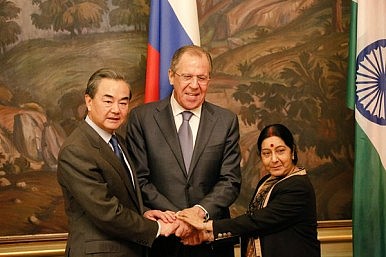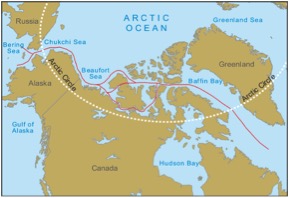I suspect that given its importance, Chinese government officials have already been gaming out the different rulings and have their responses prepared.
That would just be common sense
Undoubtably. But they would have gamed out far more than just the likely rulings, Chinese response options and consequences.
Chinese strategists would have spent years gaming out possible US counters and Chinese moves, escalation pathways and even direct conflict scenarios.
The conclusion to the overwhelming majority of those games would have played out to China's advantage.
Basically, China holds every advantage in the SCS in any escalation and even conflict scenario short of total nuclear war.
Short of blowing up the entire earth, which I think we can safely ignore, there just aren't any good choices for America and its regional allies in walking further down the escalation route with China in the SCS.
Indeed, the more the issue escalates, the more it actually benefits China.
Despite all these advantages, which China would have known full well it holds going in, at the very start of this entire US engineered crisis, China started off with its usual low key subtle approach to try and warn off the Americans while allowing them to avoid being publicly humiliated.
But rather than take the discreet ladder China offered them to climb down, America mistook Chinese thoughtfulness as weakness and doubled down when they should have folded.
Ever since, China has been gradually increasing the pressure and systematically trumping every move America has made.
As America stubbornly refuses to take the hint, China has been gradually becoming less and less subtle in demonstrating just how overwhelming its advantages are in the SCS.
The US can do all the FON patrols and hold all the joint patrols it wants. That doesn't change the actual power positions of the players in any way, shape or form.
In stark contrast to transitory American FON PR stunts, Chinese counter moves to create and consolidate new islands will continue to yield tangible benefits to China now and in the future, and drastically change the power balance in the region in China's favour.
America has gone to all the trouble and expense of securing military bases in the Philippines, thinking that is some master stroke.
But those bases are largely neutralised if China builds a massive artificial island and military base on it at Scarborough/Huangyan, from where it could see everything going on at those bases, and indeed bring those bases into direct weapons range should Beijing decide to deploy the necessary missiles there.
The fact that China is actually telling America and the Philippines beforehand is pretty much adding insult to injury, by demonstrating just how powerless they are in this situation even if they knew full well what China plans to do in advance.
I actually think China will build an island at Scarborough/Huangyan before it deploys any heavy weapons to any of the new islands it built in the Spratlys.
By not arming the other islands, China could still maintain the facade that its reclamation work at Scarborough/Huangyan is principally for civilian purposes.
Indeed, it would be pretty happy, and indeed, probably prefer to keep those islands civilian in nature and not forward deploy any fighters or missiles to them.
Just having radar sites on them to allow China to effectively monitor all of the SCS is more than enough to give the PLAN a decisive military advantage in the SCS without needing any island based fighter or missile support.
With effective monitoring of the region, and powerful PLAN action groups always patrolling in the area, no one could launch a surprise attack to take the islands without the Chinese seeing them coming from a long way off an being ready to repel the attack.
Nearby PLAN fleets could intercept attacking forces before they can threaten the islands, and land based PLAAF fighters could deploy from Hainan and not worry about having to save fuel for the trip back since they can just land at the islands they are fighting over to refuel and rearm.
The longer the conflict goes on for, the more forces China can bring to bear in the SCS, and the greater its military tactical and strategic advantages.
Even today, without fighters and missiles based on them, China's SCS islands are already going to be a hell of a hard nut to crack, and will only become more so as China's military continue to modernise.
The SCS is probably one of the very worst places anyone could try and pick a fight with China over. If really pushed to it, I have very little doubt that China would be willing to fight a war down there, because its advantages are so overwhelming, and also because it is far away enough that the Chinese mainland would effectively be off limits in any SCS war.
That removes the chief risk and cost for China associated with war - that the war will spill over onto the mainland and devastate China's economic and industrial heartland, as a war over Taiwan or in Korea, for example, carries a significant risk of doing.
For all the unseemly relish the likes of Adm Harris have been publicly voicing about bombing Chinese forces on the SCS islands, not only are China willing to fight in the SCS, given the geographical, situational awareness, numerical and logistical advantages China would enjoy in the SCS, there is a very good chance it could even win.
If American leaders cannot see it and keep expecting China to back down eventually if only they could push China far enough, then they are sleepwalking towards disaster.





